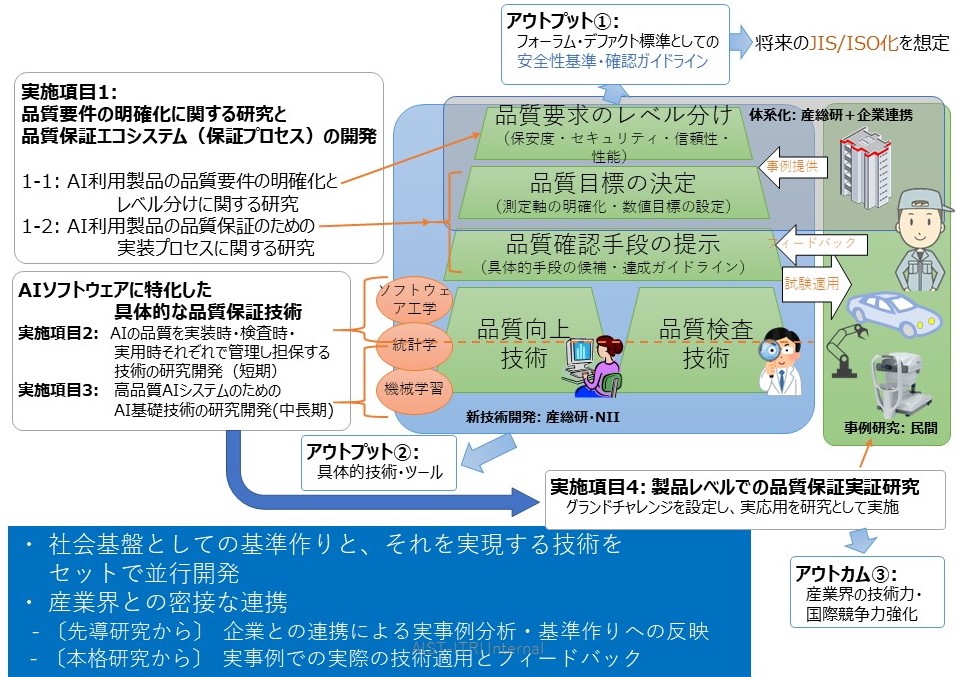Overview
Quality management of software in cyber-physical systems faces two major challenges: complexity of the surrounding environment and diversity of used software-development technologies. Cyber-physical system software will typically used in an open environment where advance analysis of the whole risks in the real use-case quite difficult. Recent software development technologies, especially AI-based machine-learned recognition and decisions, will make structural testing of software quite unreliable. Both of these do not fit well with the traditional structure of software quality management based on comprehensive risk analysis and item-wise realization of countermeasures to the risks.
To solve these problems, we work on quality assurance process and related software engineering technologies (testing, analysis, verification etc.) for the contemporary software technologies, especially those using a data-driven automatic code-generation (i.e. machine-learning / artificial intelligence) or probabilistic (randomized, non-deterministic) executions. We will find out how these kinds of software can be ensured a high level of reliability and fitted in the existing requirements and processes for software security and safety managements.
Research Plan
This project has four subtheme:

Topic 1: Determining quality assurance targets and categorization
First, we determine the targets of quality assurances required by real industrial use-cases, and divide requirements into a few categories or “levels”.
We have formed a “discussion committee quality assurance management of machine-learned systems” with people from industries.
Topic 2: Software/system engineering for AI quality management and assurance
We seek, as a short-term solutions, an applicable methods of existing software/system engineering techniques or its improvements to a machine-learned systems.
At this stage, we may sacrifice the potential performance of AI in trade of safety and security.
Topic 3: Foundations for high-quality AI-based systems
Concurrently with topic 2, we also research on next-generation improvements for artificial intelligence itself, which will achive both performance and safety/reliability/stability at the same time.
Topic 4: Product-level application of on-going research activities
To get a feedback, we will perform joint activity with industrial partners to apply developed technology on-the-fly to the industrial product development as a trial bases. We will continuously improve and evaluate technology candidates from our research activity with the feedback from such activities.
Research Formation
This research is joint research project of Cyber Physical Security Research Center with our Artificial Intelligence Research Center, Robot Innovation Research Center, and with National Institute of Informatics.
This project is supported by New Energy and Industrial Technology Devlopment Organization (NEDO).
![[DigiARC]](../data/DigiARC-E0-105.png)
![[AIST]](../data/symbolaist120x22lg.gif)